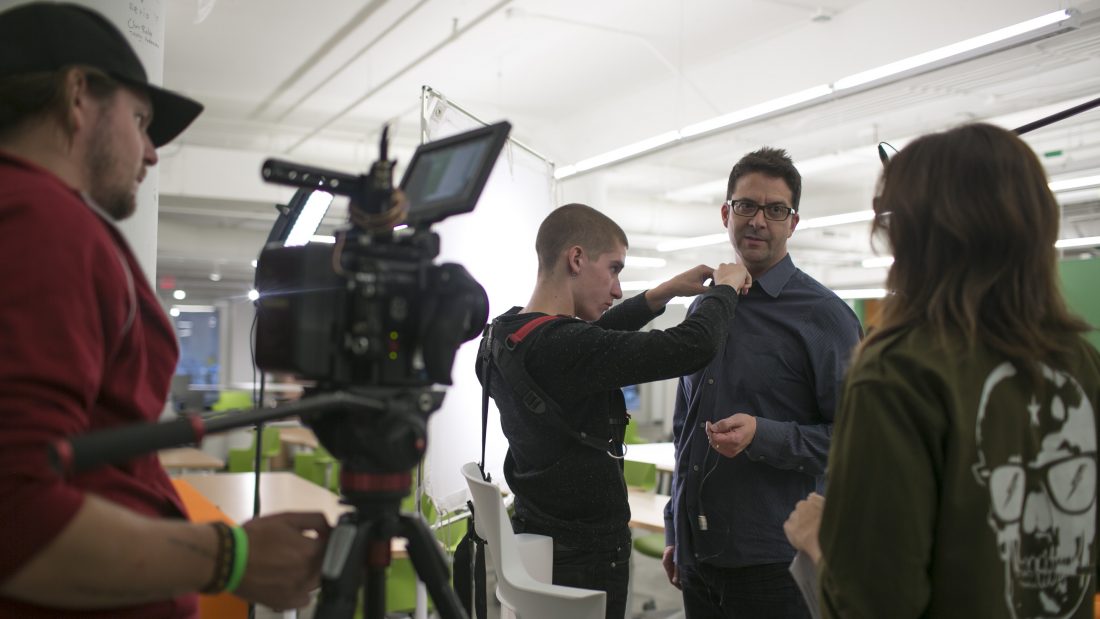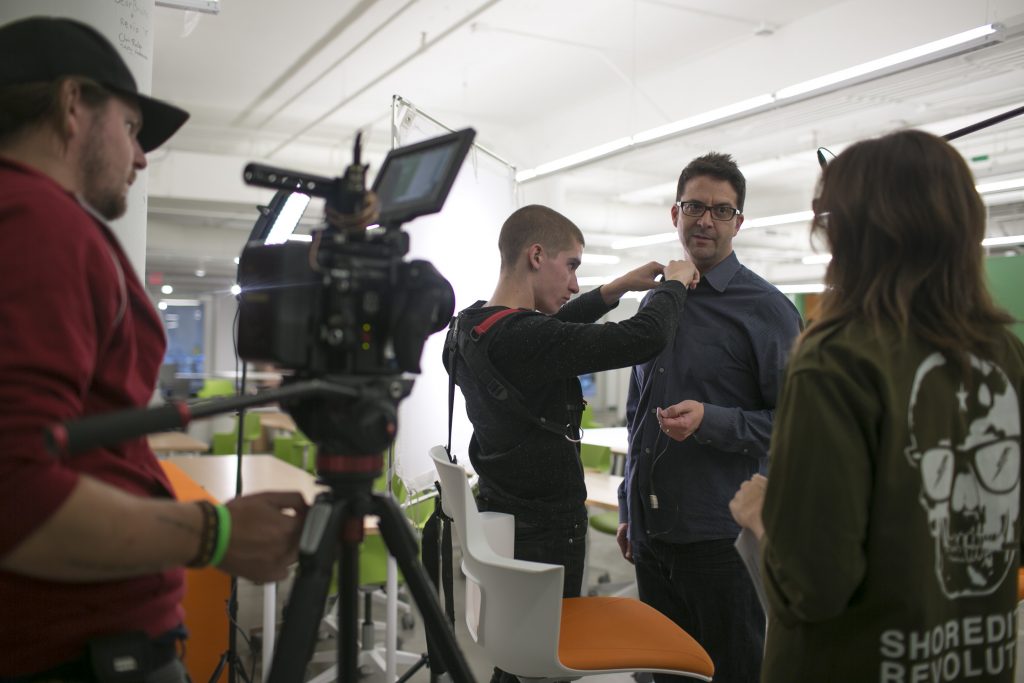
Going Deeper: 5 tips to help you nail your on-camera interview
By melissa@longhaulfilms.com in Going Deeper
We’ve interviewed hundreds of people over the years at Long Haul Films: everyone from small business owners to global CEOs. While some people love the limelight, we’ve found that the majority of people experience at least a little bit of apprehension in front of the camera.
With the rise in popularity of video as a tool to convey your organization’s mission and values, chances are that at some point, you’ll have to sit down for an on-camera interview. These tips are designed to help you feel relaxed, prepared and ready.

Tip 1: Ask if you can see the interview questions in advance
If you’re working with a production company to create a branded content video that features interviews, they should be happy to share the questions with you in advance. This gives you an idea of what will be covered in the interview, so you can organize your thoughts and think about key messaging points you’d like to cover. With that said….
Tip 2: Don’t memorize your answers, or read from a script
Reciting answers, or worse, trying to read something pre-written, ALWAYS comes across as exactly what it is… rehearsed and scripted. You want to have some ideas in mind for what you’d like to cover in the interview, but allow yourself the freedom to communicate those ideas in a way that is fresh and conversational. That energy will come across on camera, and make viewers feel like they’re having a real chat with you, rather than listening to you reading a memo. And once you get in the swing of the interview, it’s way less nerve wracking to talk naturally, versus trying to recite something memorized.
Tip 3: Provide context
Think about your audience’s level of knowledge when answering a question. How much context does the audience have? If this interview will be used in a video for new visitors to your website, they may not know a lot about your organization. In that case, you need to provide extra background in your answers. A simple way to ensure you’re providing basic context for the final edit is to “give the question back in the answer.” For example, if the interviewer asks “What is the most significant moment in the company’s history?”, start your answer by saying something like “The most significant moment in our company’s history happened in our first year…”
Tip 4: Dress comfortably
I always tell people that your on-camera interview day isn’t the day to try out a new outfit. Wear something you love, that makes you feel comfortable, and that you know is flattering. If you’re being interviewed for a video about the company you work for, a good rule of thumb is to dress as you would for an important meeting. Choose in line with your company’s culture, and don’t wear a pencil skirt and high heels if everyone in the office (including you) wears jeans and sneakers. Avoid wearing all black (it’s very draining) or all white (it’s easily over-exposed and blends in if the background is white); wild patterns (can be distracting and some cameras can’t handle them); and never wear anything with a prominent logo– unless it’s your company’s logo.
Tip 5: Breathe, relax and take your time
Before the interview starts, take a nice deep breath (or two or three) so you can focus and be present. Assuming you’re looking off-camera at the interviewer, maintain eye contact with them. It will look good on camera, and help you stay centered. If the interview is going to be included in an edited video (i.e. it’s not being broadcast live) there is no pressure to answer quickly or to “get it right” the first time. Take as long as you need to gather your thoughts and think about how you’d like to phrase an answer. And if you don’t like how an answer is coming out, stop and start over again. And no need to apologize to the interviewer– their job is to help you get it right.
And don’t forget, being interviewed on camera is nerve-wracking for most people. Feeling a little nervous is natural– we find the people who say they’re nervous tend to be the most prepared, and actually do the best job when the cameras are rolling.
